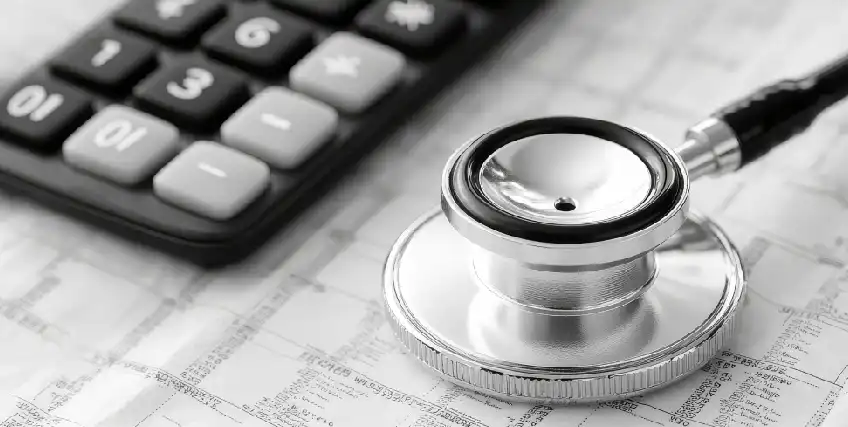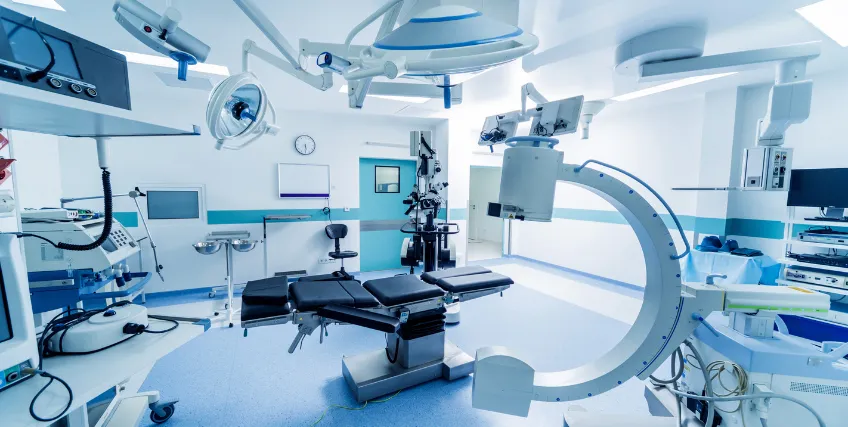The Right Medicine for Medical Practice Loans
March 2, 2025 | Last Updated on: March 2, 2025

Many small businesses need financing from time to time. Private medical practices are no different. When it comes to private practices, doctors are as much entrepreneurs as they are medical professionals.
Medical loans work a little differently from small business loans, however. Whether you’re looking for medical equipment financing or other loans for doctors, we dive into medical practice loans here.
In this article:
- Learn why doctors need medical loans, like any other small business
- Explore some of the most common costs for doctors and private practices
- Discover loans for doctors, from commercial real estate to business lines of credit
Why Medical Practice Loans Are Important
We tend to think of doctors, dentists, and other healthcare professionals as earning big incomes and living large on the golf course. But believe it or not, it takes years for physicians to become financially comfortable. While the Bureau of Labor Statistics lists healthcare positions in 19 of the top 20 highest-paying jobs in the U.S., Salary.com reports that doctors early in their careers make an average of just $114,780.
That may sound like a large number, but when you’re trying to grow a medical office and juggling enormous student loan debt, it’s not as much as you think. As such, medical practice loans can be a lifeline to a growing medical office.
Taking on additional loans for doctors can be difficult when you’re already in debt, but medical practices require working capital. Not only that, delayed payments from insurance companies, Medicare and Medicaid reimbursements, and cash-strapped patients can restrict cash flow. (The 2022 KFF Healthcare Debt Survey found that 47% of American adults say it’s somewhat or very difficult to afford healthcare costs.)
While doctors’ offices are chasing money, expenses mount. Doctors must pay employees, rent, utility bills, and purchase medical equipment and supplies. Not only that, but you must also carry malpractice insurance.
Ultimately, many physicians, like other business owners, will look to secure working capital via business loans, business lines of credit, cash advances, and other forms of small business financing.
How Can You Use Medical Loans?
Medical practice loans can be a significant lifeline for both existing practices and new ones. Doctors can use different loan options to cover a wide range of medical practice financing needs. Some of the most common include:
- Recruiting and hiring staff: Medical practices rely on physician’s assistants, nurses, receptionists, and office assistants. Securing payment from insurance companies, Medicare and Medicaid, and patients can be an even bigger challenge than actually delivering quality healthcare. You need employees to handle operations so you can focus on treating patients.
- Upgrading technology: Paper records are becoming part of the past for medical practices. However, while converting patients’ records from paper to digital files creates efficiencies for healthcare providers and their patients, it’s a time-consuming and expensive task. Loans can help pay for technology to digitize paper records and create an electronic record of visits, exams, blood tests, diagnoses, and prescriptions that enable doctors to perform their duties more efficiently.
- Purchasing equipment: Doctors’ offices purchase major assets, such as X-Ray machines, CAT scans, stress test treadmills, surgical equipment, and ultrasound equipment. Medical equipment financing can fund these purchases as well as everyday inventory, such as bandages, tongue depressors, cotton swaps, and rubbing alcohol.
- Expansion: When you’re ready to grow your healthcare practice, medical practice loans can support commercial real estate purchases to open new practices, office rentals, equipment leasing, marketing expenses, and more.
- Refinancing debt: A medical student loan refinance can help doctors better manage their personal debt which, in turn, can improve your credit score and make the business loan application process Refinances, however, tend to be expensive. Medical loans can help pay origination fees, refinance fees, and more.
Funding Options for Physicians
From general medical practitioners to optometrists and everyone in between, there are many funding options available to healthcare practices. Any loan is subject to a borrower’s creditworthiness and meeting eligibility requirements.
While traditional bank loans tend to have stricter requirements, online lenders have more accessible ones. Whether you’re looking for office space, new equipment, or just an increase in cash flow, we break down some of the best medical loans for doctors below.
Term Loans
A common type of financing for small businesses, term loans are when a lender gives a business a lump sum of cash in your business bank account in exchange for repayment terms that include interest. Short-term loans tend to have higher interest rates while longer-term ones of more than 18 months tend to have lower interest.
Term loans are available from both traditional lenders and online ones, but banks and credit unions tend to have stricter eligibility requirements and longer underwriting periods.
Small business owners can use these loans for almost any business purpose, from renovation and new equipment to payroll and other medical business expenses.
SBA Loans
Medical offices, particularly startup practices, may qualify for U.S. Small Business Administration (SBA) funding. SBA loans require more paperwork than traditional term loans from banks, but they offer attractive rates and terms for borrowers and government guarantees for lenders that are looking to mitigate their exposure to risk.
The SBA 7(a) loan program is the most popular, offering loan amounts up to $5 million to support equipment purchases, payroll, and any other business need.
Commercial Real Estate Loans
If a medical practice is looking to purchase or rehabilitate a building, a commercial loan can be the answer. These can be 15-year or 30-year fixed rate loans or adjustable loans. Often they require a 20 percent down payment, so they’re best for medical practices eager to expand or established doctors with significant personal assets ready to move into private practice.
Business Line of Credit
Any business can benefit from a business line of credit. A cross between a loan and a business credit card, this loan type gives you access to a maximum line of credit. However, you only pay interest on the amount you use.
When you withdraw from the credit line into your bank account, you must pay back the withdrawal amount, plus the interest rate, within the repayment schedule. Once you do, you’ll have access to the full loan amount again.
As a medical loan, a business line of credit is particularly useful in helping to increase cash flow and working capital while awaiting payments from insurance companies and government programs. Moreover, it offers flexible funding while you’re building a practice.
Final Thoughts
From a medical student loan refinance to medical equipment financing and much more, medical loans can help any healthcare practice grow. Small businesses often deal with financial emergencies and restricted working capital, and medical offices are no exception.
FAQs
Are healthcare practices small businesses?
Yes, private healthcare practices are businesses. They rely on billing insurance companies, government programs, and individual patients to make a profit and stay in business.
How to get a medical loan?
Medical loans, like any small business loan, are offered by both traditional lenders and online lenders. Determine the amount and type of financing you need, shop around online to compare lenders and interest rates, and apply online or in-person at your preferred financial institution.
Are medical loans and small business loans different?
While loans for doctors may often be personal loans, meaning the individual doctor is responsible for paying them back, medical practice loans are no different from other small business loans.
What are the best loans for medical practices?
Depending on what you’re looking to do with your practice, you may pursue large term loans, commercial real estate loans, medical equipment financing loans, or more flexible solutions like a business line of credit.
How can medical practices use loans?
Doctors and healthcare professionals can use loans for all kinds of business expenses. From buying medical supplies and paying employees to marketing and expansion costs, loans are flexible.
Frequent Searches Leading to This Page
doctor loans, medical student loan refinance, physician practice loans, medical practice financing




